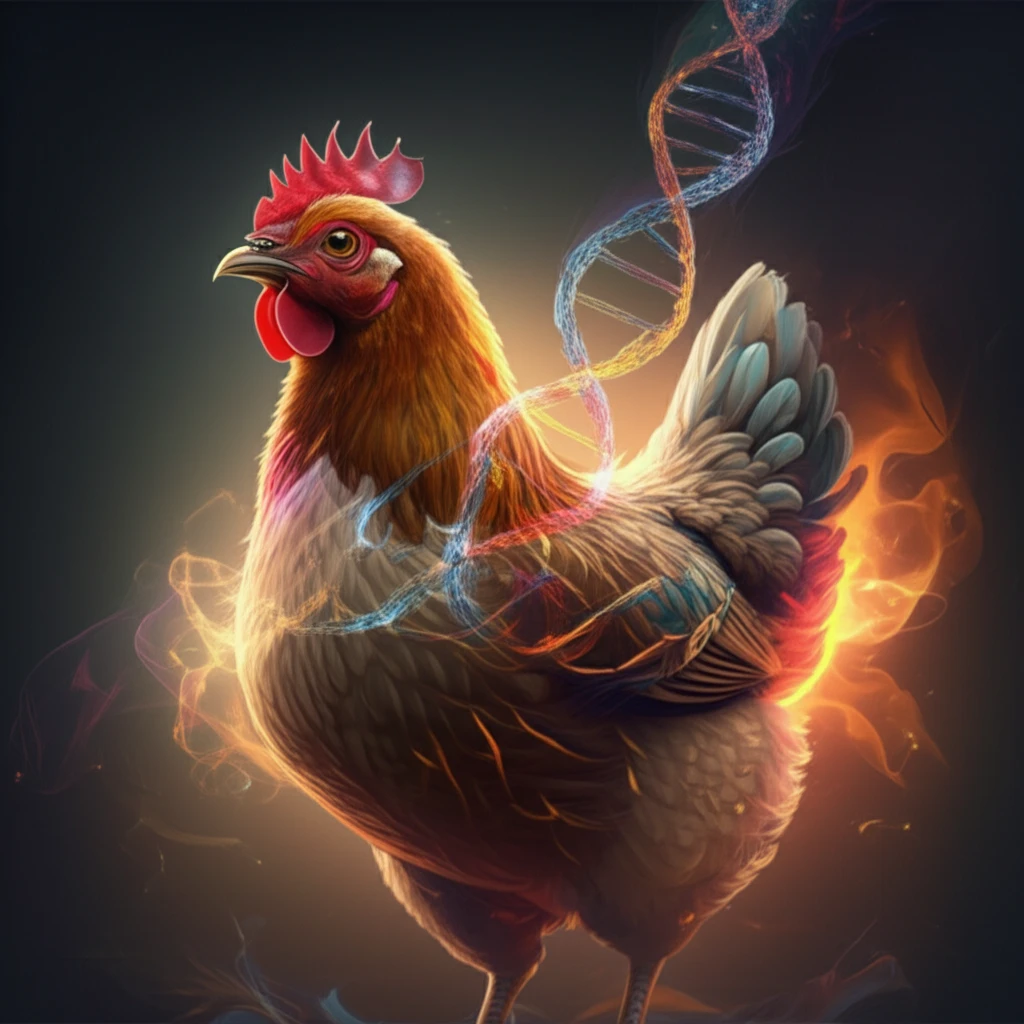
Unlocking Chicken's Secrets: How Genes Fight Heat and Disease (and What It Means for You)
"New research reveals the genetic code behind poultry's resilience to heat stress and diseases like Newcastle disease, offering exciting possibilities for a more sustainable and secure food supply."
In a world facing the escalating challenges of climate change and global food security, the humble chicken plays a pivotal role. As a vital source of protein in low- and middle-income countries, chickens often face harsh environmental conditions, including heat stress and disease outbreaks. But what if we could unlock the genetic potential of chickens to thrive in these challenging environments? New research is making significant strides in that direction, offering a glimpse into a future of more resilient and sustainable poultry farming.
Scientists are delving into the genetic makeup of chickens, specifically focusing on their responses to heat and diseases like Newcastle disease virus (NDV). This research could revolutionize poultry farming by enabling the breeding of birds that are naturally more resistant to these stressors. The implications are far-reaching, from improving food security to enhancing the welfare of these essential animals.
This article explores the groundbreaking research that's identifying specific genes and genetic combinations responsible for chickens' ability to cope with heat and NDV. We'll examine the findings, the potential benefits for both the poultry industry and consumers, and what this means for the future of food production.
The Culprit: Heat Stress and Newcastle Disease Virus (NDV)

Heat stress poses a significant threat to poultry, especially in regions with limited resources. It can negatively impact production, leading to reduced egg-laying, slower growth rates, and increased susceptibility to diseases. Alongside heat, NDV is a major constraint, responsible for significant economic losses and posing a serious threat to poultry farming globally. Understanding how chickens combat these challenges at the genetic level is key to finding effective solutions.
- Heat Stress: Reduces production, growth, and immunity.
- NDV: Causes significant economic losses and can wipe out flocks.
- Combined Threat: The combination of heat stress and NDV creates a complex challenge for poultry farmers worldwide.
A Promising Future for Chickens and Beyond
The findings from this research provide valuable insights into the genetic mechanisms behind chickens' resilience to heat and disease. These discoveries could lead to developing new breeding strategies for poultry. By identifying and utilizing beneficial genetic traits, farmers can raise chickens that thrive in challenging environments, ultimately leading to a more secure and sustainable food supply. The research underscores the power of genetics and its potential to help overcome critical challenges. It offers hope for improving animal welfare and strengthening food security for future generations.
